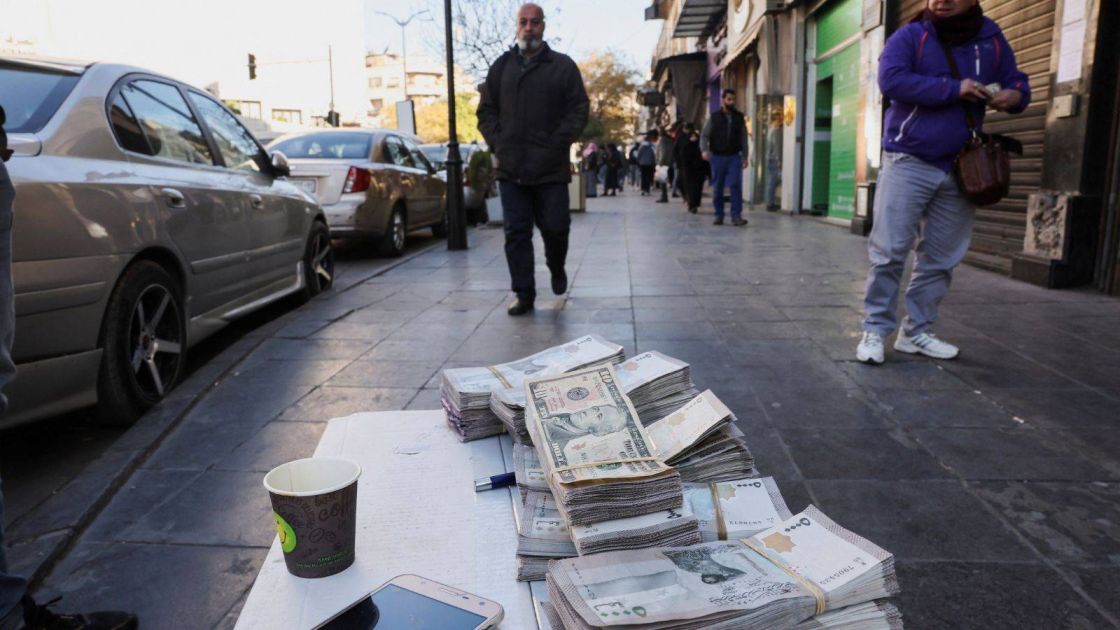- Editorials
- Posted
Kassioun Editorial 1213: The Priority of All Priorities is The People’s Condition
Topics such as civil peace, arms control, transitional justice, preparations for the national conference, the transitional government, political pluralism, democracy, the required constitution, and foreign relations of the new Syria occupy an important space in public debate among politicians, intellectuals, and the media. They are all, without a doubt, important topics for Syria’s present and future, and preoccupy all Syrians. However, they do not constitute, at this moment, the greatest obsession and concern for the overwhelming majority of Syrians.
The difficult economic living conditions and the tireless and arduous pursuit of a living occupy the main space in the minds and hearts of more than 90% of Syrians who struggle bitterly every day to secure food, transportation fees, and medicine.
The main obstacles to relaunch Syrian economy can be summarized as follows:
First: The bad legacy of the Assad regime, which destroyed the country and its people, ruined a huge part of the infrastructure, exhausted the economy, and corrupted the state apparatus. Above all, the liberal policies the regime implemented over the past 20 years, from lifting subsidies, privatization, and systematic destruction of the state sector and all productive sectors, all of this has put the country and its people in an extremely difficult situation.
Second: The continuation of the criminal Western sanctions, the suspension or easing of which is still just media and political talk that has not been truly reflected on the ground, and cannot be relied on. The West continues with its so-called “step for step” project and is still using sanctions as a stick over the heads of Syrians and the authorities in Syria, as it did before, to achieve the conditions it wants. The historical experience with Western sanctions, and US sanctions in particular, teaches us that the US never completely lifted any sanctions it imposed on any country, even if its regime changes; Iraq is a living example of this.
Third: Syria today does not have a single connected internal market; sufficient understandings have not yet been reached with the northeast; and many areas in Syria are still under the control of certain factions, which control those areas’ economies and crossings despite their official announcement of their dissolution. It is known that the unity of the country, any country, necessarily requires the existence of a single market that connects its various parts and allows its economy to take off, rise, and advance.
Seriously dealing with the socioeconomic situation in Syria is no less important than any other public issue, and it can even be said that today it occupies the top priority. On the one hand, because the continuation of poor living conditions, in addition to the clear confusion in the policies pursued by the interim government, including the large-scale and ill-considered dismissals, and the push towards ending any direct economic and social role of the state, including bread and various other sovereign joints, means opening a large loophole for foreign interventions and attempts to explode the civil peace and reignite the strife and attempts at partition of the country.
On the other hand, although Syrians may differ on many things regarding the form of the state, the constitution, and other issues, they certainly agree (at least 90% of them, the plundered ones who live below the poverty line) on the necessity of reviving national economy, improving people’s living conditions, and re-producing a single national market.
Focusing on this common point of agreement will not only neutralize major dangers, but will also pave the way for restoring the unity of the country and its people, consecrating civil peace, and opening the door to a real, fraternal, and peaceful discussion on various other issues.
Inventing a new model for the Syrian economy, a primarily Syrian model, far from any ready-made Eastern or Western formulas, is an absolute necessity today, and a realistic possibility at the same time. The country is rich in its experiences and wealth and can rely on the absolute values in its economy that have not been invested in over the past hundred years, and it is capable of relaunching the economy within a few years and without relying on foreign aid or waiting for Western mercy or the mercy of the International Monetary Fund and the World Bank, which will not come no matter how much we wait for it.
This priority of all priorities should be the main focus of work at the national conference, and in the subsequent transitional government, along with all other issues on the table.


